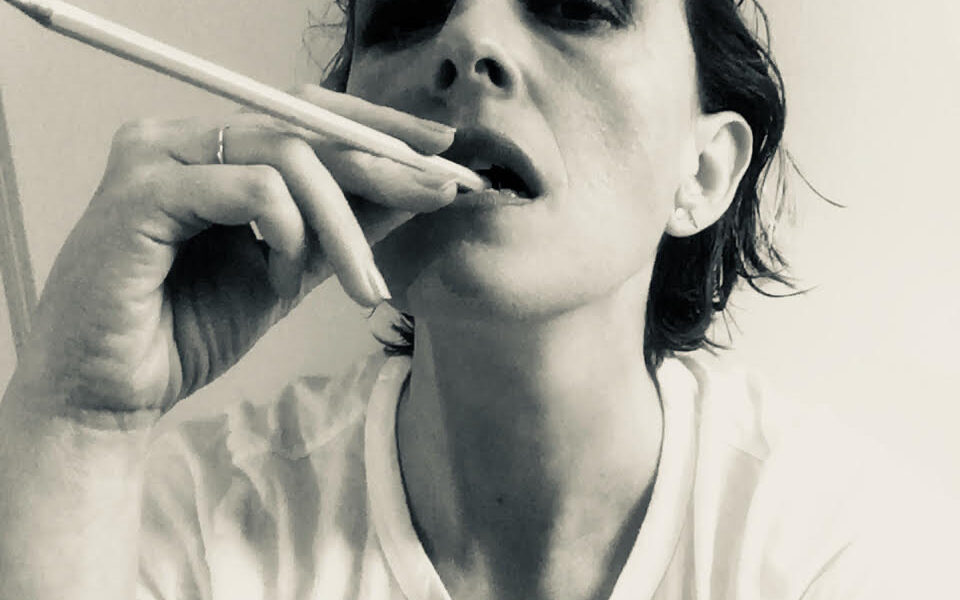by Richard Speer
To post or not to post? In light of the “delete-Facebook” and anti-social-media movements, an increasingly vocal contingent of visual artists is wrestling with that very question. Is it worth engaging a digital matrix one finds insidious in order to promote one’s creative output? The question hits close to home for Colorado-born, Portland-based artist Felicity Fenton (b. 1977, fig. 1). Deeply inquisitive, ambitious, and imaginative, Fenton is an interdisciplinary virtuoso who floats freely across drawing, painting, photography, new media, social practice, writing, and conceptual art, juggling her artistic life with hosting a radio show (“Bachelard’s Panty Drawer” on Freeform Radio 90.3 FM), co-parenting a seven-year old daughter, and, significantly, working a full-time job as creative director at a Portland-based tech firm. This day job, more than any other she’s held in the past (sign painter, massage therapist, Arby’s cook, personal assistant to Paul Simon and Lou Reed), informs her art practice today. While she has tackled an array of ideas throughout her artistic life (food and consumption culture, domesticity, ritual, sexual response) and exhibited at a plethora of local venues (among them Milepost 5, p:ear, Anka Gallery, Launch Pad Gallery, the Portland Building, and Performance Works Northwest), it is her current focus on social-media addiction and new-media platforms that most clearly crystallizes her dilemma. Swimming by day in the digital ocean, she returns evenings to her home studio and stares down the impulse to eschew completely the digital realm. Does she engage social media despite its draconian undercurrents in a Faustian bargain to disseminate her ideas; or, in a bid for greater personal authenticity and aesthetic integrity, does she put down the phone, turn off the Wi-Fi, and try to recapture the less contrived, less “connected” ethos of the pre-digital era?
Originally commissioned for the Visual Arts Project by The Ford Family Foundation CRITICAL CONVERSATIONS program element, this essay also appeared in FIGURING, an annual arts journal (shifting title as it progresses) of the same program. Critical Conversations is led by the University of Oregon with partners Portland State University, The Cooley Gallery, Reed College; and PNCA at Willamette University.
The inaugural publication is dedicated to notions of “figuring,” that is, the processing of a moment to inform a position from which to act, the presentation of a form, or expression of a body. By holding space for both indeterminacy and latent form, Figuring conjures histories and possible futures, lived experiences, and propositions for ways that ethereal matter might exist concretely or be allowed to endure as defined by its own logic.
